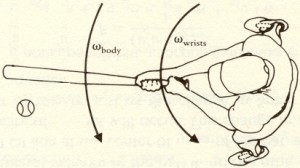What Does Baseball Have to Do With Parenting?
It’s a 60-foot journey from the pitcher’s mound to home plate. Once the ball is released from the pitcher’s hand, a batter has 55 feet to anticipate what’s coming across the plate and adjust his stance accordingly. Then, for those last 5 feet, the batter loses sight of the ball; he goes blind. It’s in those last 5 feet that the pitcher wants the ball to break off its path: the curve ball hooks, the slider drops, or the fast ball flies by. That last, 5-foot block of the ball’s trajectory has a nickname: the dark zone. (Click here to read more.)
Baseball has more in common with parenting than you might think. The preparation of parenting from birth through middle school is like the first 55 feet of the ball’s journey. The parent is anticipating, recalibrating, and adjusting, with a good visual on target goals. And then, just as the child hits adolescence, all that preparation and work flies out the window as parents go blind, finding themselves living with someone who is unpredictable and erratic. None of their previous boundaries seem to work. And it’s in those last 5 feet, as they’re swinging blindly, that they realize their teen has managed to throw a curve ball. They’re in the dark zone.
Can you relate?
You’ve spent your child’s formative years laying the foundation, now all the measures of control seem to have whittled away. How do you know when to say “yes” and when to say “no” in the teen years?
The Perfect Storm
Before you decide to set boundaries, you have to know what you’re up against: teen neurobiology.
According to cognitive developmental psychologist, Jean Piaget, teens have already developed adult-like cognitive reasoning (known as formal operational development), by age 11 or 12. This development includes abstract thinking, rhetoric, logic, and rationalization. Translated: by age 12 they have fine-tuned their debate skills.
In contrast, their emotional development (decision-making, impulse control, emotional control) is housed in the pre-frontal cortex and not fully operational/developed until their mid-twenties (some might argue not until age 30). This leaves parents with the perfect storm of neurobiology where teens are emotionally dysregulated and intellectually over-compensating. Translated: they are highly articulate rhetoricians who are emotionally stunted.
With the intellectual capabilities of teens, parents sometimes make the mistake of assuming their emotions should be on par with their intellects. When this happens, boundary setting gets derailed by parents who try to set logical boundaries while teenager and parent alike are at the height of emotional reactivity.
Pushing Buttons
Remember that last high school reunion you went to? We often dread going to high school reunions because they resurrect the same insecurities, doubts, and heightened emotions we had when we were that age. In a similar fashion, teens dredge up adolescent emotions in their parents. And parents under stress end up acting in similar fashion to their teens.
What are some of the ways this translates? Examples include full-blown yelling matches; the current Cold War (i.e. ignoring one another and punishing through silence); the gridlock where both parent and teen try to outdo the other’s rules, and many variations and combinations of the three.
In summary, the perfect storm of teen neurobiology leaves teens well-primed to push parents’ buttons, and parents often respond in kind.
There are many ways parents get derailed from their quest to set boundaries in the dark zone. For more on that, stay tuned…

